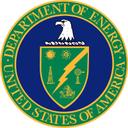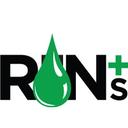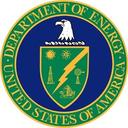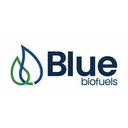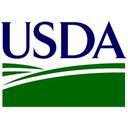WestJet Group CEO Alexis von Hoensbroech, on Sept. 19 at the World Petroleum Congress in Calgary, addressed the airline's ambitions to achieve net-zero emissions by 2050 and the vital role SAF plays in the future of decarbonizing aviation.
Clean Fuels Alliance America, American Soybean Association, National Oilseed Processors Association the U.S. Canola Association are urging the Biden administration to adopt GREET for the purposes measuring GHG reductions for the SAF tax credit.
President Joe Biden on Sept. 9 joined leaders of India, Argentina, Brazil, Italy, Mauritius and the United Arab Emirates to launch the Global Biofuels Alliance. The launch took place on the sidelines of the G20 Summit in New Delhi.
The RFA, Growth Energy and the USGC on Sept. 14 sent a letter to U.S. Treasury Secretary Janet Yellen advocating for the adoption of GREET to measure GHG reductions for the purposes of SAF tax credit created by the Inflation Reduction Act.
The U.S. Department of Energy's Bioenergy Technologies Office awarded $18.6 million in funding to eight university and industry projects to develop biomass feedstocks to produce affordable biofuels and bioproducts that reduce GHG emissions.
Members of the European Parliament (MEPs) on Sept. 13 approved a new law that ramps up requirements for sustainable aviation fuel (SAF) within the European Union but sets limits on what types of feedstocks that fuel can be made from.
Agricultural Secretary Tom Vilsack on Sept. 12 called on ethanol producers to seize the opportunity offered by the emerging SAF market and stressed that climate-smart ag and carbon capture technologies must play a role in ethanol-to-SAF production.
NCGA President Tom Hagg and the leaders of 16 state corn grower groups on Sept. 7 sent a letter to Treasury Secretary Janet Yellen urging the adoption of the U.S. DOE’s GREET model to measure GHG reductions for the purposes of the SAF tax credit.
Gevo Inc. has finalized and executed a notice of grant and agreement award with the USDA for a Partnerships for Climate-Smart Commodities grant of up to $30 million for Gevo's Climate-Smart Farm-to-Flight Program.
The U.K. government on Sept. 4 announced plans to introduce a revenue certainty mechanism to support domestic SAF production. The initiative aims to bolster the development of SAF and drive further investment in SAF projects.
The Canadian government on Aug. 30 announced it is investing up to $5.3 million in an initiative that aims to support the development of biomass supply chains and cutting-edge technologies to produce biomass and value-added agricultural products.
The U.S. DOE's Bioenergy Technologies Office and the U.S. National Science Foundation have funded three new projects that aim to help accelerate innovation and develop new biomanufacturing approaches.
Through the GREATER MSP Partnership, Bank of America, Delta Air Lines, Ecolab and Xcel Energy have established the Minnesota SAF Hub – the first large-scale SAF Hub in the U.S. committed to scaling SAF production.
Minnesota Department of Agriculture Commissioner Thom Petersen is encouraging the federal government to allow the U.S. DOE's GREET model to be used to calculate GHG reductions for the purposes of the SAF tax credit.
The American Carbon Alliance on Aug. 23 sent a letter to Internal Revenue Service Commissioner Danny Werfel urging the U.S. Treasury Department to adopt the U.S. Department of Energy's GREET model to calculate the GHG emissions impacts of SAF.
Reps. Jasmine Crockett, D-Texas, and Max Miller, R-Ohio, on Aug. 18 introduced the Farm to Fuselage Act, legislation that aims to update the Farm Bill to facilitate increased domestic production of sustainable aviation fuel (SAF).
More than 1.98 billion RINs were generated under the RFS in July, up from 1.71 billion generated during the same month of last year. Total RIN generation for the first seven months of 2023 reached 13.4 billion.
The Surface Transportation Board is soliciting nominations to fill six vacancies on its Rail Energy Transportation Advisory Committee. One of those vacancies is to be filled by a biofuel producer or feedstock provider.
The U.S. Department of Energy’s Bioenergy Technologies Office has awarded $2.5 million in funding to four projects that aim to advance lab-developed clean bioenergy technologies towards commercialization.
A bipartisan group of 21 federal lawmakers on July 28 sent a letter to U.S. Treasury Secretary Janet Yellen urging the Treasury Department to adopt the U.S. DOE's GREET model as the secondary methodology for calculating the SAF tax credit.
The DOE's BETO often requires FOA award recipients to comply with technical and economic validation of their novel technologies. The agency has released a new set of web resources to help awardees and applicants under the process.
Reps. Mike Flood, R-Neb., and Nikki Budzinski, D-Ill., on July 25 introduced the Sustainable Aviation Fuels Accuracy Act of 2023, a bipartisan bill that aims to identify the standards required to meet the definition of SAF at the FAA.
More than 2.04 billion RINs were generated under the RFS in June, up from 1.86 billion generated during the same month of last year, according to data released by the U.S. EPA. Total RIN generation for the first half of 2023 reached 11.39 billion.
The U.S. DOE's BETO on will host a Bioenergy Cybersecurity Workshop on Sept. 11. The virtual event will focus on the identification of cybersecurity risks in biofuel and bioproduct manufacturing as well as ways to address those risks.
The third ministerial meeting of the U.S.-India Strategic Clean Energy Partnership was held in New Delhi on July 18. Participants, in part, welcomed cooperation between the two countries related to biofuels, including sustainable aviation fuel (SAF).
Blue Biofuels Inc. announced on July 11 it has been awarded a U.S. Department of Energy Small Business Innovation Research Phase 1 grant. The $206,500 grant will support efforts to scale and optimize the company's cellulose-to-sugar process.
The USDA’s Risk Management Agency on June 30 announced it will expand crop insurance for camelina in direct response to the anticipated increase in demand for the crop for biofuel production. The expansion provides additional grower certainty.
Korean Air has partnered with GS Caltex to conduct test flights using SAF. The test flights using SAF will be analyzed and the results will be used by the Korean government to establish SAF quality standards and accelerate commercialization.
As part of a newly established collaborative, Lawrence Berkeley National Laboratory’s Advanced Biofuels and Bioproducts Process Development Unit will co-lead an effort to establish bioindustrial manufacturing capability in California.
The FAA has opened a public comment period regarding its intention to request OMB approval for a new information collection related to sustainable aviation fuel (SAF) grant funding included in the Inflation Reduction Act.
Advertisement












